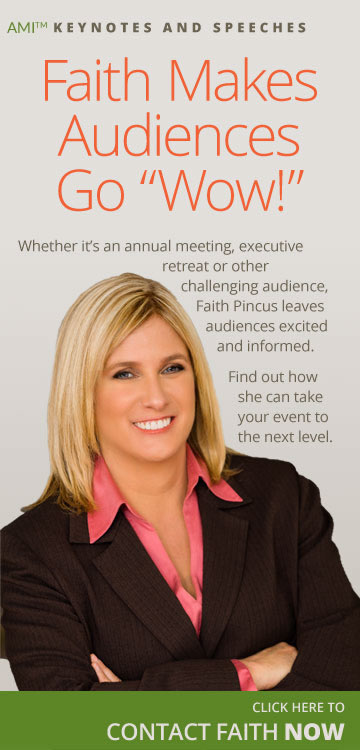Top Tips Part I: Improving your Oral Argument
This is the first in a series of Top Tip posts I’ll be making on litigation and presentation skills, culled from Pincus Professional Education CLE programs by judges, staff attorneys and practitioners, as well as the public speaking and oral argument courses I teach.
Improving your Oral Argument, Part I:
Presentation skills are critical to the success of any attorney. We need to be good at presenting in the board room, the court room, the office and even in the community, because that is what the job demands.
And, the better one is at public speaking, in any context, the more that person is perceived as an expert and a leader and the more that person advances in her or his career.
Below are five quick tips to improve your public speaking skills in the court room – but I could go on forever, and will provide more later on. These tips come straight from judges and court staff attorneys.
- Find out who your audience is and meet their needs: in this case – the judge(s) or Justice(s)
Make sure your presentation is right for your audience – your trial or appellate judge. Who is the judge and what is her or his (or their) approach on the bench? Should you expect a lot of questions, a quiet judge, a hot panel? Instead of approaching the argument from your perspective, approach it from theirs.
How do you do this?
• ask around;
• most importantly, take the time to go see your judge(s) / justice(s) in action, on multiple days;
• think you don’t have time for a and b above?
You really do, you just have to give something else up – one less lunch, one less day at the gym, or a few less billable hours that month … whatever it is you have to give up, it is worth it to not be surprised the day of your argument.
And you will be amazed at how much you learn just by watching other attorneys do well, or not so well.
For a quick post on finding out more about your judge, regardless of where the court is located, see "Well, You’re Better Than You Look.” by Eileen Burkhalter Smith on the Young Lawyers Blog for more ideas on this topic.
- Organize, Organize, Organize
One of the biggest problems attorneys have when presenting is being disorganized. That includes trying to cover too much.
In an oral argument, you have time to cover, at most, 3 important issues. Pick your top three issues, and practice arguing them in any order possible.
For an excellent, detailed post on the how to organize, the judge’s perspective, and what to expect, see Andrew Frey’s article, "Preparing and Delivering Oral Argument" on Mayer Brown’s Appellate Net site.
- Don’t read your brief or your presentation.
First rule of oral argument: never read your brief. Assume the judge and her lawclerks have read it.
Second rule, don’t write your presentation out word for word and read it. I know some of you love to do this, but it is a habit you have to learn to drop.
Oral argument is your opportunity to have a conversation with your judge(s).
It’s one of the most exciting, rewarding parts of litigating (really!). This is your chance to engage on an intellectual level with your judge and it’s their chance to get their questions answered (see #4 below) and learn what they need to learn to decide the case.
None of that happens if you read a presentation. On top of that, it really annoys judges.
I once heard a 20+ year career staff attorney for an appellate court describe oral argument this way:
“the most effective advocate imagines he or she is a law clerk in chambers explaining why a judge should go a certain way. They are not argumentative; instead, they focus on having a conversation about why judge should make the desired ruling.”
Many courts provide tips on their website and also post post oral arguments for you to learn from. For example check out the Florida Supreme Court’s information, "Information about Oral Arguments."

- Answer the question.
I watch attorneys make this mistake all the time. And it is probably the #1 complaint I get from judges, justices and law clerks.
When your judge/justice asks you a question, think of it as a red flag waving in front of you – this is what they are interested in and want to know more about. Stop. Listen. Listen to the whole question – don’t answer it in your head while they are still asking. Take a moment to compose your answer (they will respect that), and then answer it concisely and directly.
And if you don’t know the answer, admit it, and offer to provide a written answer by brief supplement the following morning. Don’t fake it – they can smell that a mile away.
- Don’t argue with opposing counsel.
This tends to happen a lot at the trial level. Despite what you see on TV, attorneys arguing with each other in court during oral argument is a big no-no. Why? It doesn’t’t accomplish any of your goals and it hampers your credibility (see my first post about "Attorney Credibility" on this blog):
• First, the other attorney is not’t your audience;
• Second, you’re not engaging with your judge or answering his or her questions;
• Third, you can’t make a record by arguing with opposing counsel;
• And finally, Judges find it worse than annoying – they think it is stupid.
Remember – public speaking and oral argument are an acquired art. Not everyone is a natural born speaker, but everyone can improve by learning how to do it better.
Oh, and don’t forget to make sure your travel plans allow you to show up on time. In her post: "My Young Lawyer Experience: “That’ll be $50!” Eileen Burkhalter Smith writes about when she got fined by the court for showing up late for an argument.
 Did you enjoy this article?
Did you enjoy this article?



Great post Faith! I can one-up the $50 fine. This was before the days of the cell phone and I was behind a “big rig” on the 5 trying to get to Orange County Superior. Yes, I was late. When I arrived, the Judge and Plaintiff’s counsel were shooting the breeze. I apologized & made my appearance. The Judge denied my motion without argument and said, “if I ever see you in my Court again, I’ll sanction you.” I was a young lawyer. I said, “if I do something sanctionable,I’m guessing,” with a crooked smile. “COUNSEL! You’re not listening! If . . . I . . . EVER . . . seeyouinmycourtagain, I will .. . SANCTION you.” We settled.
Wow Vickie! That’s one way for a judge to scare the heck out of a young attorney.
Anyone else have late to court / sanction stories to add? I would LOVE to hear them!